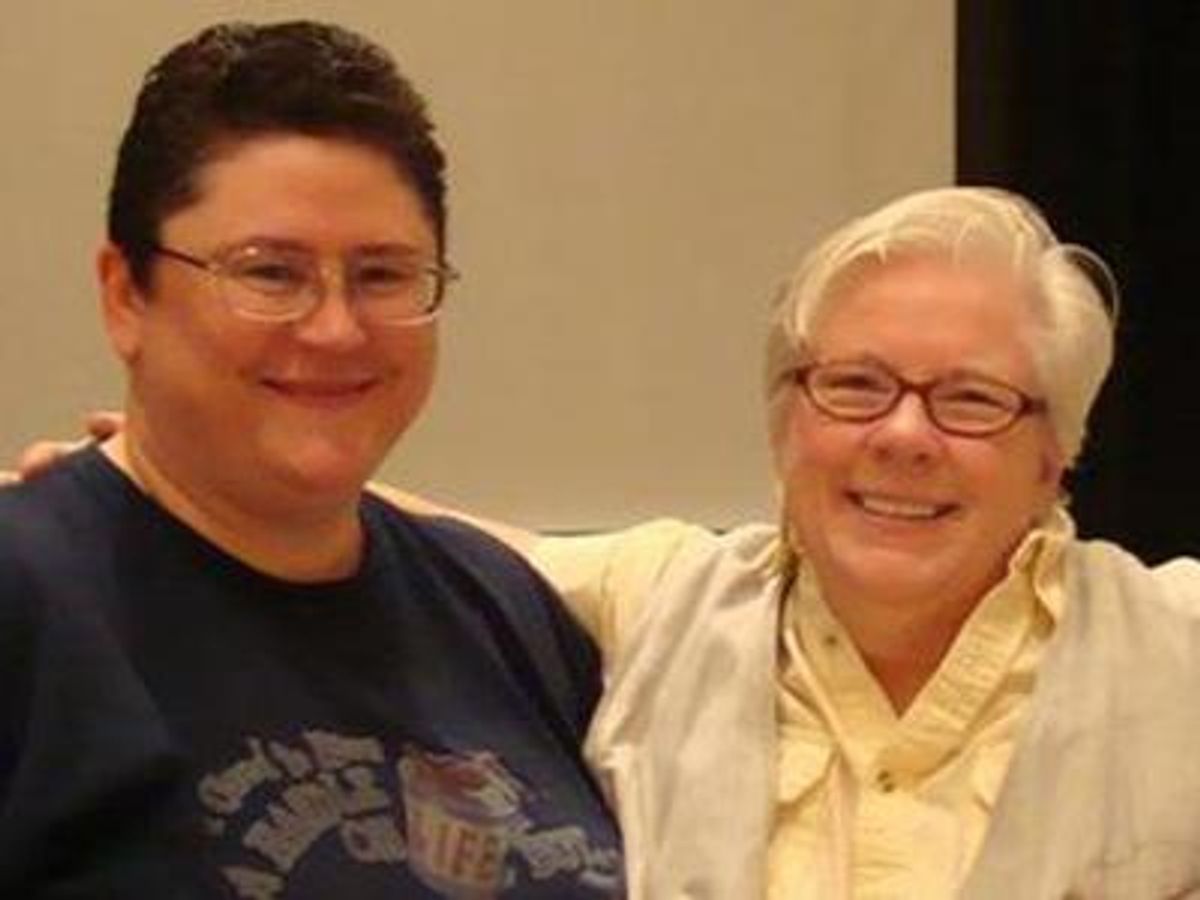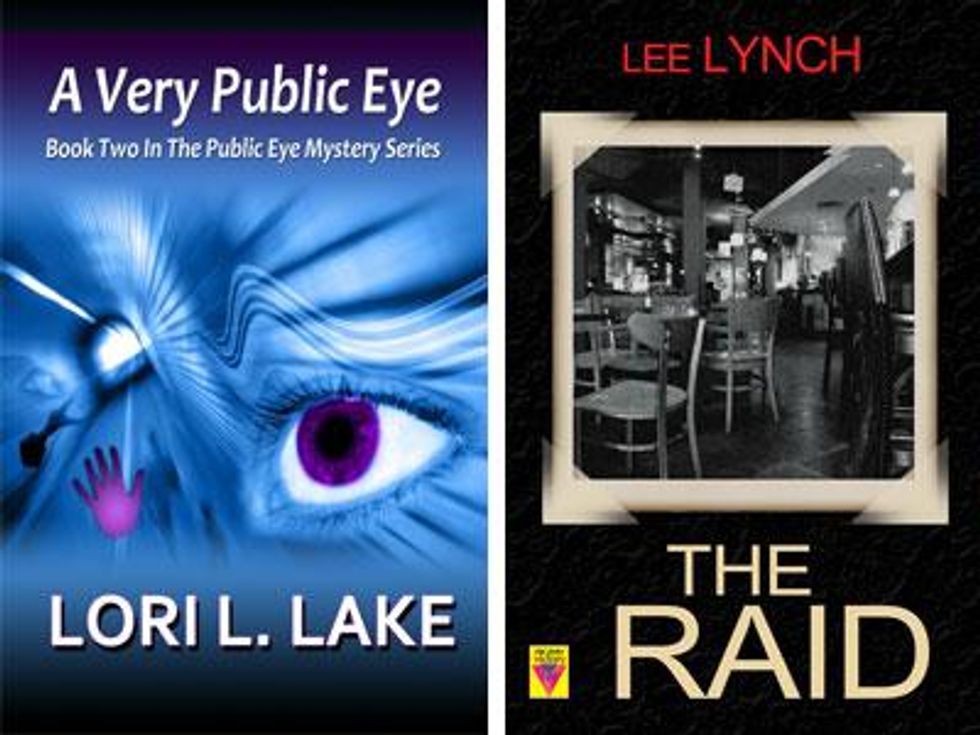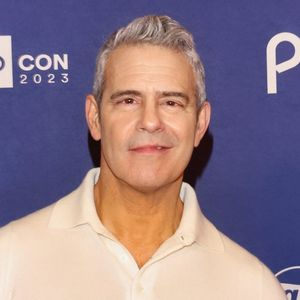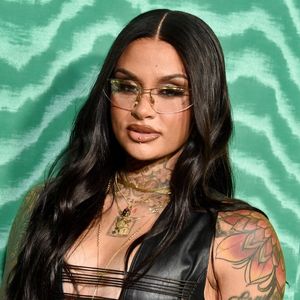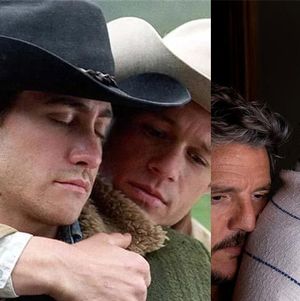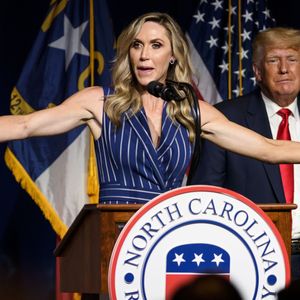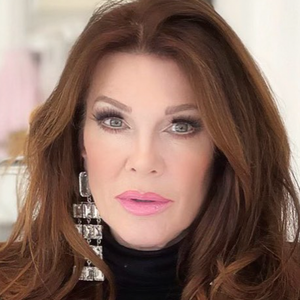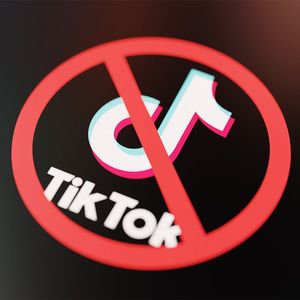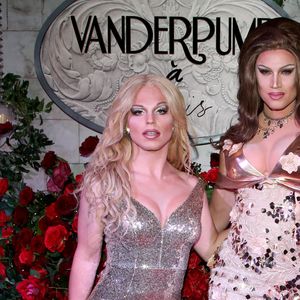Lori L. Lake and Lee Lynch have a lot in common -- both are prolific writers of lesbian literature, well-versed in characters' propensity to run away with a writer's words. The two also happen to be good friends with dozens of books between them. Lynch, who began writing lesbian lit 1960s for The Ladder, one of the earliest lesbian magazines, has published 15 books so far. Her latest, The Raid, follows a group of LGBT bar patrons after a police raid, and hits bookstores this month.
Lake has published 14 books, with her latest being the second in a mystery series, titled A Very Public Eye, which comes out November 9. In this exclusive author conversation, Lake and Lynch sound off about what unites them, how trying to write for a heterosexual mainstream audience silenced them both, and the importance of lesbian literary godmothers.
Lake: [Our time is way] too short for all the things I want to talk to you about.
Lynch: We need to try to focus on something. The obvious focus would be generational. But I'd love to demonstrate our similarities. Such as both devoting our lives to lesbian lit, if I'm correct.
Lake: I have to agree with you. We have both devoted a lot of time and energy to writing our tales and sharing them with the sisterhood. And yes, we have a lot of similarities. You're not old enough to be my parent -- more like a big sister. But we both started fairly young working at our craft. I benefited from your books, which started me off in the mid '80s; so in terms of time, you are like my spiritual writing godmother. We've both had discouraging forces in our lives, but kept on in spite of it. And when people ask when I'll retire, I say, "Never! I want to be writing and publishing right up to the last day of my life."
Lynch: I once told [my partner] Elaine to have the doctors pull the plug if I couldn't write anymore, but, at age 66, I can see the pleasures of simply sitting, breathing, watching the wild birds, and enjoying Elaine and our cats and dog. As long as I'm not a burden, I can imagine enjoying a few years of rest and peace and knowing I've done my job because you and others are writing and gays are stronger and safer and we and the world can and will stop hating ourselves.
Lake: Amen to that. I remember hearing [lesbian author] Ellen Hart talk about how relieved she was when she realized that she wasn't going to -- didn't have to -- write herself and her own life and experiences out of her books. In my early 20s, I tried for a long while to write mainstream stories, but I ended up with about a hundred rejections. Nobody wanted my version of reality at all.
Lynch: Me too. Trying to write mainstream stories never worked for me either. I even tried writing about cats, who are the next best thing to lesbians.
Lake: I think Rita Mae Brown stole all the good slots for the cat books.
Lynch: Ahem. [My book] Sue Slate: Private Eye came out first. Can't tell you how many readers say they like that one best of mine. Nevertheless, I had this misconception that I could earn money writing for the mainstream, but as soon as I tried it, I choked up. I couldn't think of a thing to write about.
Lake: That happened to me too. I wrote the majority of two novels that were fairly mainstream and ended up abandoning them. Even CPR couldn't have brought the main character to life. The minute I allowed her to be the lesbian that she needed to be, the books experienced a resurrection.
Lynch: And am I glad they did. I came to a point where I can simply be very grateful to have been chosen as a channel for our stories.
Lake: That's a good place to be. I remember when I posted the beginning of a lesbian novel, Gun Shy, online, I not only found my voice, I found my audience. I'm still focusing on that -- on the excitement of reaching out to women and hoping that my tales of time and trauma and love and loss will make a difference. I think you could enjoy some rest and peace, Lee, but I also think you have a lot more stories to tell.
Lynch: Oh, the stories will never stop, goddess willing. I may not have the energy or marbles to put them in a form with value to anyone else, but I'll be thinking them.
Lake: I have a hunch you will have the energy and the marbles to do a lot more writing, my friend. You've got a great body of work so far, and I know you can share more -- verbally or on paper. I hope that works for me too. Thanks for being such a good trailblazer.
Lynch: Just like [novelist] Valerie Taylor was for me. I had the honor of knowing her in her later years. She was still a devoted pacifist and a Quaker and working to make her Meeting gay-friendly. She talked a blue streak and never stopped writing stories -- with difficulty -- on her manual typewriter. If her letters were any indication, I understood why she could not get her last work published. But that's OK. She was my spiritual writing godmother. She gave me a small metal typewriter someone special gave to her. It was clearly a passing of the torch.

Lake: Do you use the typewriter? Or did you just have it bronzed?
Lynch: [Laughs] It's 2.25 inch by 2.25 inch by 2 inch. The carriage and roller move, but I might have trouble working the stationary keyboard!
Lake: How funny. The sci-fi writer Jean Stewart gave me a little typewriter like that with Snoopy typing. I keep it on top of my computer screen for encouragement.
Lynch: I have a flat screen, so I keep mine on the base. Obviously this will become a lesbian writer tradition. You mentioned keeping on despite discouraging forces. I kept on because of them. The writing got me through a lot, and I used the tough times to enhance the writing.
Lake: See, this is why you're a hero to me. You've kept on writing despite bad times, and I must admit I haven't always been able to use my misfortunes to my writing advantage. There's a reason why it was over three years between Shimmer and Like Lovers Do. I couldn't write for a very long time.
Lynch: I suspect you will write about those times eventually. They need to work their way through our hearts and brains until they find their right form. You might have to reexperience some of those painful emotions, but in so doing, your readers will find your catharses valuable for their own lives. Your short stories, for example, are so powerful they are unforgettable. They hit me in the heart.
Lake: That means a lot, coming from you. Thank you. I do find it easier sometimes to deal with hard topics in shorter stories, although the novel I just finished in the Public Eye series explores some unexpected emotions about breakups that I didn't realize would push to the forefront. Half the time I have no clue what the heck is going to rise up out of me. I guess that's part of the fun. Do you usually have a plan about what you'll end up writing about?
Lynch: No, I have no idea either. I have index cards in every nook and cranny of our house and my car, not to mention in my backpack and pocket vest and cargo shorts. Elaine makes sure they're available places I don't think of, like on the dryer and porch. Less often I'll use electronic gadgets too, as I can cut and paste from those, but I can't seem to get in the habit. To answer your question, I never have a plan. At least not anything formal. I hope that doesn't show. I might have a character in mind or, more often, a setting. Like a plot of land with a great view. and I start building a story house that reflects the landscape. Anyway, you mentioned having a deadline in September. What are you finishing?
Lake: Now that the Public Eye book is off to the typesetter, I've returned to the fourth book in the Gun series, which is called Jump the Gun. I'm about halfway through and cranking toward the end. Actually, I already wrote a lot of the end and all of the first third, so it's just the process of writing the middle to finally reach the end that's going slowly. If I just keep at it every day, I'll have the first draft in a few weeks, then I can work on revisions and get it to the editor soon after.
Lynch: Do you have the next project and the next in mind? I find stories tripping over themselves to get out into the world.
Lake: Oh, yeah. I'm tripping over novels right now as well. I've got six or seven in various stages of disrepair. Next up I want to write a romance called Eight Dates. As soon as possible after that, I can't wait to write the third book in the Public Eye series, which is about a woman soldier who's recently returned from Afghanistan and is accused of murder. I love her character. She's positively haunting me, and I can't wait to find out more about her in the writing.
Lynch: Well, get a move on -- we're waiting! You sound just like me in terms of ideas and a rush to get the stories on paper.
Lake: What are you working on right now?
Lynch: I recently sent off my final proof of The Raid, which is due out from Bold Strokes Books this month.
Lake: That's fabulous. I'm so happy to hear that.
Lynch: It started off as a play that was actually performed. A reader, Frizz, wanted me to write more about the old days, and the play was set in the early '60s, so I thought I could whip it into a novel in a couple of years. Well, I did, but gosh, it was a more extensive project than I thought and tripled in size. I follow a group of characters who know one another from a bar through a raid and its aftermath. [It's] my first attempt to portray violence against gay people. Now I've started Rainbow Gap. I wanted it to be a simple romance. That's not happening. It may be the first of a quartet of books about a character introduced in another book. But I can't talk about it or I risk destroying the whole project.
Lake: I learned the hard way that it's best if I don't talk very much about a book until the first draft is complete. The times when I've blabbed away about it, I've ended up losing the urgency to write it -- ended up feeling like a set of bellows with all the wind let out.
Lynch: Exactly! Great analogy.
Lake: I know I'm driving people crazy sometimes because they want me to talk about the plot and the characters or even just the themes, but I've become very cautious so that nothing interferes with a story in progress.
Lynch: You teach writing. Does that ever interfere with telling your own stories?
Lake: Only in terms of time spent in preparation. When I first pull a course together and also for the first week or two of teaching, it takes a lot of time and energy, and that takes focus away from my own writing. But once I get into the schedule of teaching a class, I love it. The students' enthusiasm totally infects me, and I usually end up writing a lot myself. I don't mind doing workshops, but I very much enjoy teaching over a period of time -- eight or 10 or 12 weeks -- because I like the ebb and flow of it. I also love to have the chance to see how each writer progresses over time. When I'm able to assist writers with their craft and technique or help them to shape and grow a manuscript, it makes my heart very glad.
Lynch: We need that. I believe you've taught at the Golden Crown Literary Society conventions.
Lake: I have -- and also at the Loft in Minneapolis and various other places as well.
Lynch: Thank you for helping dykes to write about our lives. The more stories we write down, the harder it will be to silence us.
Lake: No more silence. I think we need to be a loud mob.
Lynch: May you live and write long.
Lake: Right back at you. I can't wait to read your next book. And the next one. And the next. Thank you for persevering over the years, Lee. It's made a difference in a lot of lives, especially mine. You'll always be my spiritual writing godmother, and that makes me very happy.
